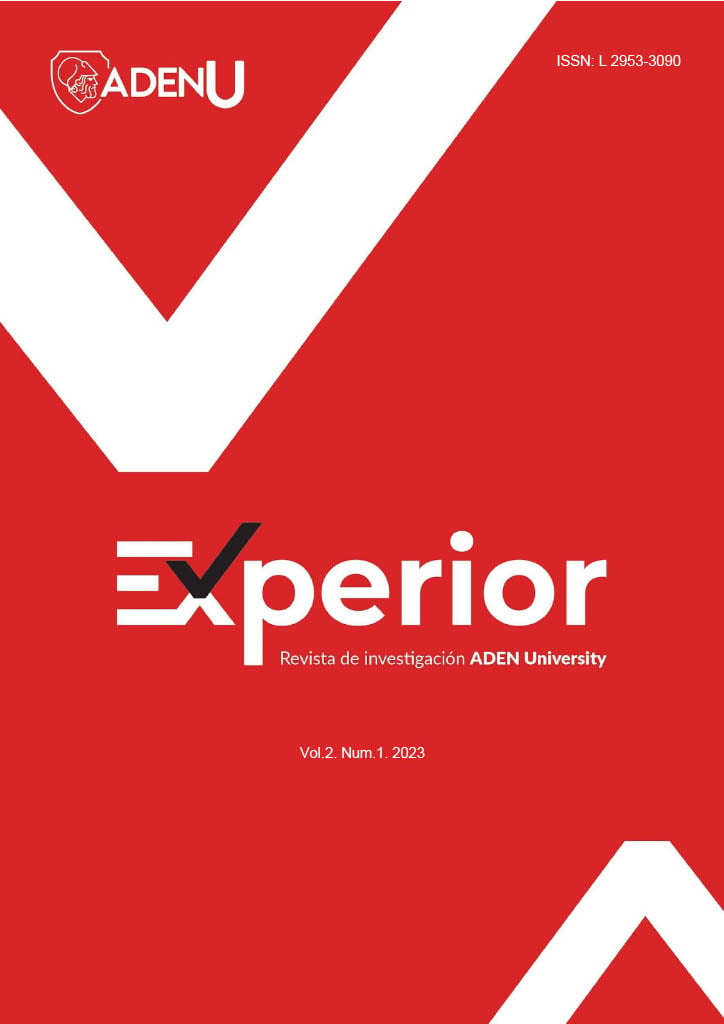Acerca del cambio de enfoque en las empresas: del beneficio excluyente para los accionistas al beneficio compartido de las partes interesadas
DOI:
https://doi.org/10.56880/experior21.7Palabras clave:
Responsabilidad Social Empresarial, Estrategias de Valor Compartido, Empresa “B, Teoría Institucional, Triple Cuenta de ResultadosResumen
Se vive un momento de alta disrupción social, política y económica. La idea de este artículo es plantearse una hipótesis frente a estas transformaciones: ¿Hay una propensión dentro del ámbito empresarial a cambiar un enfoque centrado en beneficios para los stockholders, hacia un enfoque centrado en los stakeholders? Basados en los supuestos de la Teoría Institucional, Selznick (1957), Simon (1957), Parsons (1960), Meyer y Rowan (1977), Scott (1991) y del neo institucionalismo, desarrollado por DiMaggio y Powell (1983), North (1986), Zucker (1986), se verifica una sucesión de conceptos y movimientos en los últimos 30 años para impulsar la Responsabilidad Social Empresarial (RSE), basada en la Teoría de los Stakeholders, Freeman (1984), Cornell y Shapiro (1987), que inspiraron las teorías instrumentales sobre RSE sostenidas por Hart (1995), Linz (1996) y Prahalad (2002); ideas que apuntalaron las Estrategias de Valor Compartido de Porter y Kramer (2006, 2011), Bockstette y Stamp (2011) y, recientemente, las Empresas “B”, Berns, et. al. (2009), Nidumolu (2009), Hopkins (2010), Grimes, et. al. (2018), indican que sí. En este trabajo, proponemos evaluar si hay un hilo conductor entre estos tres movimientos, si las ideas subyacentes están adecuadamente instaladas en el ámbito empresarial y, fundamentalmente, si hay una propensión o inclinación para cambiar de modelo. Para ello hemos propuesto un instrumento de medición, denominado Propensión al Cambio de Enfoque (PCE), que permita a las propias organizaciones evaluar su grado de madurez para impulsar un cambio radical en sus Modelos de Negocios.
Descargas
Referencias
Abbas, J. (2020). Impact of Total Quality Management on Corporate Green Performance through the Mediating Role of Corporate Social Responsibility”. Journal of Cleaner Production 242.
Alshehhi, A., Haitham, N. & Nilesh, K. (2018). The Impact o Sustainability Practices on Corporate Financial Performance: Literature Trends a Future Research Potential. Sustainability, 10 (2), 494; https://doi.org/10.3390/su10020494.
Bauman, Z. (1999). Modernidad líquida. Ediciones Nueva Visión.
Bauman, Z. (2007). Consuming life. Editorial Fondo de Cultura Económica.
Bauman, Z. (2017). Retropía. Editorial Paidós.
Berns, M., Towned, A., Khayat, Z., Balagopal, B., Reeves, M., Hopkins, M. S. & Kruschwitz, N. (2009). Sustainability and Competitive Advantage. MIT Sloan Management Review, 51(1), 19-26.
Bockstette, V. & Stamp, M. (2011) Creating Shared Value: A How-to Guide for the New Corporate Revolution. Foundation Strategy Group, No. 3, 12.
Bowen, H. O. (1953). Social Responsibilities of the Businessman. Harper & Row.
Cornell, B. & Shapiro, A. C. (1987). “Corporate stakeholders a corporate finance”, Financial Management, Spring, pp. 5-14.
Davis, J. H., Schoorman, F. D. y Donaldson, L. (1997). Toward a stewardship theory of management. Academy of Management Review.
DiMaggio, P. J. y Powell, W. W. (1983). The Iron Cage Revisited: Institutional Isomorphism and Collective Rationality in Organizational Fields. American Sociological Review, 48, 147-160.
Franco, S., Caroli, M. G., Cappa, F. & Del Chiappa, G. (2020). Are You Good Enough? CSR, Quality Management and Corporate Financial Performance in the Hospitality Industry. International Journal of Hospitality Management 88.
Freeman, R. E. (1984). Strategic management: a stakeholders approach. Pitman Publishing.
Friedman, M. (1970). La responsabilidad social de las empresas es incrementar sus beneficios. New York Times Magazine.
Garriga, E. & Melé, D. (2004). Teorías de la Responsabilidad Social Corporativa: Mapeando el territorio. Journal of Business Ethics.
Gond, J. P., Palazzo, G. & Basu, K. (2007). Investigating Instrumental Corporate Social Responsibility through the Mafia Metaphor. International Centre for Corporate Social Responsibility Nottingham University Business School.
Grimes, M., Gehman, J. & Cao, K. (2018). Positively Deviant: Identity Work Through B Corporation Certification. Journal of Business Venturing, Forthcoming, Apr. 2018 Kelley School of Business Research Paper Nº 18-33.
Harari, Y. N. (2011). Homo Sapiens, de animales a dioses. Editorial Debate.
Harari, Y. N. (2015). Homo Deus, breve historia del mañana. Editorial Debate.
Harari, Y. N. (2018). 21 lecciones para el siglo XXI. Editorial Debate.
Hart, S. L. (1995). A natural-resource-based-view of the firm. Academy of management review, 20(4), 986-1012 35.
Hart, S. L. & Christensen, C. M. (2002). “The great leap. Driving innovation form the base of the pyramid”. Mit Sloan Management Review, 44 (1), 51-57. 37.
Hopkins, M. (2010). Ocho razones por las que la sostenibilidad cambiará la Gestión. Harvard Deusto Business Review, 186, 8-11.
Iglesias, O., Markovic, S., Bagherzadeh, M. & Singh, J.J. (2020). Co-Creation: A Key Link Between Corporate Social Responsibility, Customer Trust, and Customer Loyalty. Journal of Business Ethics 163.
ISO-DIS 26000, (2010). Guía para la Responsabilidad Social. ISO.
Jensen, M.C., & Meckling, W.H., (1976). Teoría de la firma: comportamiento gerencial, costos de agencia y estructura de propiedad. Journal of Financial Economics.
Kotler, P. & Lee, N. (2005). Corporate Social Responsibility: Doing the Most Good for Your Company and Your Cause. John Wiley & Sons, Inc.
Levine, R. (2005). Finance and Growth: Theory and Evidence. Handbook of Economic Growth. https://doi.org/10.1016/S1574-0684(05)01012-9
Li, Z., Liao, G. & Albitar, K. (2020). Does Corporate Environmental Responsibility Engagement Affect Firm Value? The Mediating Role of Corporate Innovation. Business Strategy and the Environment 29.
Linz, R. A. (1996). A resource-based-view of the socially responsible firm: stakeholder interdependence, ethical awareness, and issue responsiveness as strategic assets. Journal of business ethics 15, 1355-1363..
Maignan, I. & Ferrel, O. C. (2004). Corporate social responsibility and marketing: An integrative framework. Journal of the Academic of Marketing Science, 32, 3-19.
McWilliams, A. & Siegel, D. (2001). Corporate Social Responsibility: A Theory of the Firm Perspective. The Academy of Management Review, 26(1), 117-127.
Melé, D. (2004). Corporate Social Responsibility in Spain: an overview. IESE Business School.
Meyer, J.W. & Rowan, B. (1977). Institutionalized Organizations: Formal Structure as Myth and Ceremony. American Journal of Sociology, 83, 340-363.
Montoya, J. C. (2011). La Tendencia de la ciudadanía corporativa es implicar a un grado superior a las compañías. Portafolio.
Naciones Unidas, (1999). Pacto Global. Publicaciones Naciones Unidas.
Nechi, S., Belaid, A. & Zouhair, M. (2020). Managing sustainable development through goal programming model and satisfaction functions. Annals of Operations Research 293.
Nidumolu, R. (2009). Why sustainability is the key driver of innovation. USA.
North, D. (1986). The New Institutional Economics. Journal of Institutional and Theoretical Economics, 142, 230-237.
Parsons, T. (1960). Structure and Process in Modern Societies, Free Press, Glencoe Ill.
Porter, M. E. & Kramer, M. R. (2006). The Link Betwenn Competitive Advantage and Corporate Social Responsibility. Harvard Business Review.
Porter, M. E. & Kramer, M. R. (2011). Creating Shared Value. Harvard Business Review, Enero-Febrero.
Prahalad, C. K. (2002). Serving the world´s poor, profitability. Harvard business review, 80(9), 45-58.
Saha, R., Shashi, P., Cerchione, R., Singh, R. & Dahiya R. (2020). Effect of ethical leadership and corporate social responsibility on firm performance: A systematic review. Corporate Social Responsibility and Environmental Management 27.
Sánchez Henríquez, J. A. & Yáñez Vidal, I. A. (2021). Responsabilidad social, un estudio bibliométrico. CAPIC REVIEW.
Sardana, D., Narain, G., Kumar, V. & Terziovski, M. (2020). CSR ‘sustainability’ practices and firm performance in an emerging economy”. Journal of Cleaner Production 258.
Scott, W.R. (1991). “The Evolution of Organization Theory”, en G. Miller comp., Studies in Organizational Sociology: Essays in Honor of Charles K. Warrier. Greenwich, CT: JAI, 53-68.
Scott, W. & Mitchell, T. (1981). Sociología de la Organización. Editorial El Ateneo.
Selznick, P. (1957) Leadership in Administration. Harper & Row.
Senge, P., Laur, J., Schley, S., Smith, B. & Kruschwitz, N. (2009). La Revolución Necesaria. Grupo Editorial Norma.
Simon, H. (1957). Administrative Behavior, 2ª ed. (1ª en 1945). Macmillan.
Sims, R. R. & Brinkmann, J. (2003). Enron Ethics (Or Culture Matters More Than Codes). Journal of Business Ethics, 45, 243-256.
Stiglitz, J. E. (2012). El precio de la desigualdad. Editorial Debolsillo.
Stiglitz, J. E. (2015). La gran brecha. Editorial Taurus.
Stiglitz, J. E. (2019). Capitalismo progresista. Editorial Taurus.
Tezanos, J. F. (2008). La actual incertidumbre económica y la sostenibilidad empresarial. Cuadernos de Economía Social N° 4, Cepes.
Waddock, S. (2004). Parallel Universes: Companies, Academics, and the progress of Corporate Citizenship. Business and Society Review, 109 (1), 5-24.
Zucker, L.G. (1986). Production of Trust: Institutional Sources of Economic Structure, 1840-1920, Research in Organizational Behavior, 8, JAI Press.
Descargas
Publicado
Número
Sección
Licencia

Esta obra está bajo una licencia internacional Creative Commons Atribución-NoComercial 4.0.










